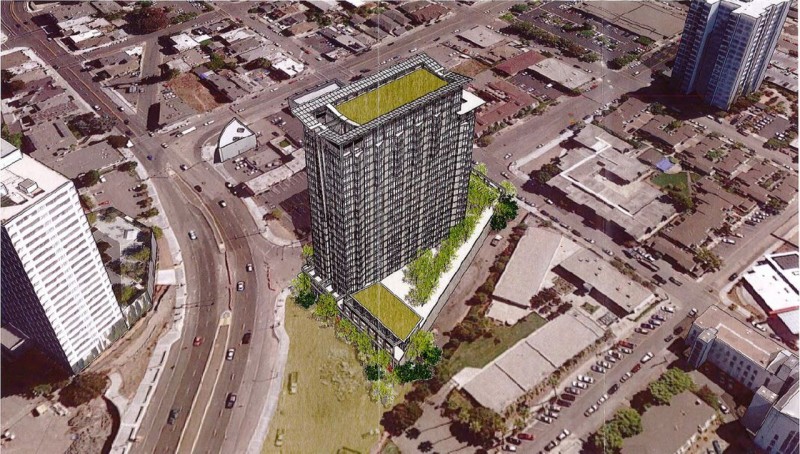But the housing activists were not appeased by the negotiated benefits. Those included $700,000 on top of the sale price to go toward a skate park and other amenities.
Activists faintly praised making 10 percent of the building's housing "affordable," but scoffed at the definition of affordable. City Council members were not convinced either. After a meeting that went late into the night, the council did not have the votes to pass the proposal. Rather than scratching the sale, Councilmember Desley Brooks suggested going back to the bargaining table with the developers to strengthen the community benefits package.
Which brings the saga to Wednesday night. Rather than increasing the number of affordable housing units in the tower complex, there will now be over 300 market-rate apartments built. And instead of including affordable housing on-site, there is that check for $8 million, which is directed, the city says, toward affordable housing.
The pro-development argument -- that Oakland needs more housing of all types -- was clear. As East Oakland resident and real estate broker Steve Peterson told the council, "This project brings more units to the city that will help absorb the housing demands. So that us that are working in the neighborhoods can keep people in the neighborhoods. If people got money, they rich, they ballin', they moving here anyway."
Eastlake United for Justice's Samantha Liapes did not disagree with the inevitability of development.
"Developers are coming to Oakland, this is just a fact," she said. "There are already many market-rate projects in the works, and the market is only going to heat up."
But Liapes added that it is precisely for this reason that the city should focus on creating affordable housing, particularly on public land. "The one thing the market is not going to create in a moment like this is low -income housing," Liapes told the council.
East Bay Housing Organization's Jeffrey Levin agreed with Liapes, saying his concern wasn't about the community benefits package, but about the use of public land. "We acknowledge the need to provide housing for all economic levels, [but] we think it's important to remember that city-owned land belongs to the people of Oakland and the City Council and staff are stewards charged with using that land for public good."
Levin and others also questioned the legality of the sale.
California's Surplus Land Act requires that city land be sold in very specific ways, including offering land to public agencies before entering into an agreement with a for-profit developer.
Another aspect of last night's heated council meeting was the divisions it revealed between labor and housing activists.
The room was flooded with union workers in reflective vests, on-hand to support the project. They told the council that there just were not enough construction jobs in Oakland and asked members to go forward with the project. Housing activists were not on the same page.
